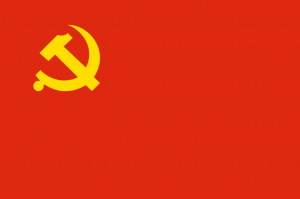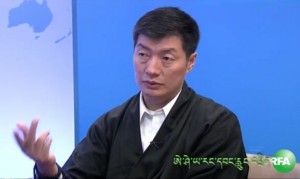 China has issued a White Paper entitled Development and Progress of Tibet which boasts of Tibet’s “comprehensive development and rapid progress over the past 60-plus years” and makes it clear that there will be no change in its hard line policies on Tibet: “only by adhering to the leadership of the CPC (the Communist Party of China)…can Tibetans become and remain the masters of their own affairs…In the future, too, this path will remain essential to Tibet’s development”.
China has issued a White Paper entitled Development and Progress of Tibet which boasts of Tibet’s “comprehensive development and rapid progress over the past 60-plus years” and makes it clear that there will be no change in its hard line policies on Tibet: “only by adhering to the leadership of the CPC (the Communist Party of China)…can Tibetans become and remain the masters of their own affairs…In the future, too, this path will remain essential to Tibet’s development”.
The official Chinese Xinhua news agency reported that Tibet under Chinese rule is “developing economically, making progress politically, has a flourishing culture, a harmonious society and a good environment; its people are happy and healthy.”
The White Paper describes Tibet before Chinese occupation as “dark and backward as medieval Europe” and rejected criticism, saying that “any fair-minded person would be filled with amazement” at the advancements China has bought to Tibet. It repeated China’s assertion that the Dalai Lama is intent on pushing for Tibet’s independence to sabotage its development and stability.
The Tibetan Government-in-Exile (CTA) responded with the statement “The ultimate judge of China’s rule in Tibet should be the Tibetan people….today large parts of Tibet are still under martial law like control. The alarming escalation in desperate forms of protest, including self-immolations, in Tibetan areas, is a clear judgment made by the Tibetan people of China’s sixty years rule of Tibet.” The CTA also points out that “Interestingly, no other minorities in China have been the object of so many white papers. In light of growing public awareness and sympathy for the Tibetan cause, China is constantly challenged to justify the legitimacy of its presence in Tibet.”
The Tibetan Centre for Human Rights and Democracy has said that the White Paper distorts the current reality of Tibet, as well as Tibet’s history, by denying its distinct identity as a nation and civilisation having a cultural influence beyond its Himalayan borders.
The Gu-Chu-Sum Movement for Tibet also condemned the White Paper. Passang Tsering, the newly-elected President of the organisation said, “China tries to deceive the world by portraying Tibet as a politically stable society and its people living happily but in reality, there are no political rights in Tibet and Tibetans are subjected to torture…China’s policy is unfair and unequal.” He added that the Chinese government is the real cause of social instability in Tibet.
In an interview for Radio Free Asia in the USA, Tibetan exile political leader Lobsang Sangay called on Chinese leaders to change their “hardline” policies in Tibet, urging dialogue as the only way forward to resolve problems. “Proposals by Tibet’s exile government that Beijing allow ‘genuine’ autonomy for Tibetans do not pose a challenge to rule by the Communist Party” said Sangay, “Tibetans should be allowed control of all aspects of their lives, including religion, culture, language, and the environment”.





 Print
Print Email
Email